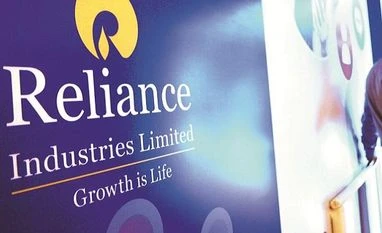Reliance Industries’ consolidated performance for the March quarter (Q4) may be disappointing, but experts are bullish on the stock and believe shareholders should subscribe to its rights issue.
The challenges posed by demand disruption in core refining, petrochemicals and even retail businesses are likely to continue but the strong growth in Jio Platforms — comprising digital businesses — and deleveraging initiatives should create shareholder value in the long run, experts say.
In largest refining and marketing business, per barrel gross refining margin (GRM) at $8.9 was slightly lower than $9.2 seen in Q3, but washigher than $8.2 a year ago. The Street was expecting GRMs of up to $8, with benchmark Singapore GRM averaging $1.2 in Q4 — the lowest in 17 years. RIL, however, accounted for inventory loss associated with steep decline in crude prices, under exceptional items. Thus, standalone profits adjusting for this, were below analysts estimates.
“RIL has recorded non-cash inventory loss of Rs 4,250 crore, which, if adjusted (like normally done for oil marketers), would result in inventory loss of $4.4 per barrel during Q4. Thus, the core GRM stands at $4.5,” analysts at Motilal Oswal Securities (MOSL) said.
Petchem, now the third-largest revenue and profit contributor, continued to see impact of lower realisations and supply disruptions, and its performance fell short of expectations with profit down 22.4 per cent sequentially (42.8 per cent yoy) in Q4.
Organised retail has been growing, but Q4 revenues and profits were hit by lockdown, and could only grow 4 per cent and 20 per cent, respectively, year-on-year (led by essential product sales). It may take a while before it can rebound to revenue and Ebit run-rate of 25 per cent and 49 per cent, respectively, seen in FY20.
The highlight of Q4 was the digital business (Jio Platforms), where revenue grew 26.6 per cent and pre-tax profit grew by 127 per cent, on a y-o-y basis, as Jio's subscriber base grew ahead of expectations to 387.5 million (versus 370 million in Q3 and 306.7 million a year ago). Average revenue per user (ARPU) at Rs 130.6 was up about 2 per cent sequentially. Better traction is expected as analysts such as Probal Sen at Centrum Broking expect the full impact of tariff hikes taken earlier to flow in the coming quarters.
Interestingly, together, Jio and retail saw their share in RIL's Ebitda increase to 38.6 per cent in Q4, up from 35.8 per cent in Q3 and 29.1 per cent in the year-ago period. And, as these numbers rise, the two are seen as RIL's new core businesses.
Jio’s improving show should also support RIL's overall valuation, at a time when outlook for other businesses remains challenging. “We value RIL at Rs 1,618 per share (earlier Rs 1,589) based on sum-of-the-parts with equity values of Rs 358 (earlier Rs 353) for core business, Rs 500 (earlier Rs 450) for Reliance Retail and Rs 760 (earlier Rs 750) for Jio,” analysts at MOSL said.
Edelweiss Securities is more optimistic on telecom performance and pegs RIL's FY21 Ebidta growth at 15 per cent.
Besides Jio, the balance sheet deleveraging is crucial. Vinod Nair, head of research at Geojit Financial Servies, said the capital restructuring will boost longer term prospects for investors. RIL is raising Rs 1.04 trillion through its Facebook deal worth Rs 43,574 crore, investment by BP, and the country’s largest rights issue of Rs 53,125 crore (its first in three decades).
The rights issue priced at Rs 1,257 per share is at 14.3 per cent discount to Thursday's closing price of Rs 1,467.
While the Street was expecting a bigger discount, experts say the company’s due diligence on valuations it expects to garner from fresh investments in various businesses and recent Facebook deal must have influenced the pricing.
Promoters committing to 50 per cent and any unsubscribed rights issue instigates confidence. Deepak Jasani, head of retail research at HDFC Securities, highlights that there are very few equity investment opportunities in current environment and investors need to pay only 25 per cent at time of subscription so can consider investing.
Unlock 30+ premium stories daily hand-picked by our editors, across devices on browser and app.
Pick your 5 favourite companies, get a daily email with all news updates on them.
Full access to our intuitive epaper - clip, save, share articles from any device; newspaper archives from 2006.
Preferential invites to Business Standard events.
Curated newsletters on markets, personal finance, policy & politics, start-ups, technology, and more.
)